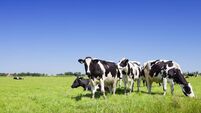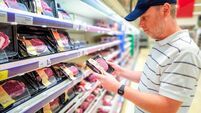Kieran Coughlan: Just keeping the derogation is too narrow a position for candidates seeking farmers' votes

Every voter eats and drinks. What do candidates suggest can be done to address food inflation as the two issues of farmers' futures and consumer food inflation are intrinsically linked. Picture Chani Anderson
It’s amazing how politicians seem to have become interested in retaining Ireland’s Nitrates Directive. It’s one of those hot topics that those seeking to get elected know that will resonate with farmers.
Whilst farmers are not quite the lobby group that they once were, it would be remiss of any election candidate to not at least say the right things to farmers. Keeping the derogation is but one of the things that are causing farmers frustration, and whilst it will get air time and possibly will be seen as the focus of whether a particular candidate is on or off side when it comes to farmers, it really is only the tip of the iceberg.













